Bury the Hatchet
The 20s are all about coming together. Conflict is one of those things that you either really like or something that you kind of run away from. it's unavoidable because at some point in time someone will disagree with you, make you angry, or offend you. It's one thing to have some strife but an entirely other thing to work through it to productive place of moving on. Not every tiff can have a neat wrap up but there is something to be said about trying to salvage relationships and to learn from discomfort. It's time to bury the hatchet.
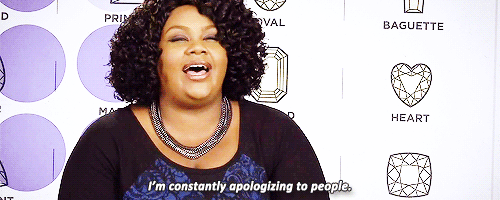
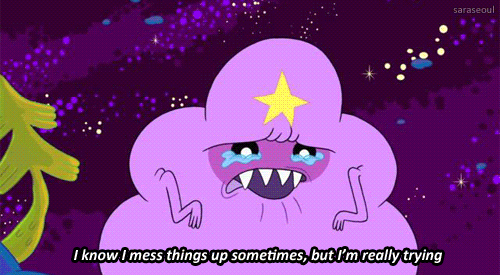
The literal imagery of burying the hatchet calls to mind the digging of a hole from fertile moist dirt ripe with writhing pink earthworms. I imagine it to be picturesque like two politicians breaking ground with perfectly manufactured smiles, clipping a pristine red ribbon, and shaking well-moisturized hands. A few words are said in a ceremonial fashion and a glistening stainless steel hatchet is lowered into the hole prepared for it and covered. The scene while dripping with superficiality nonetheless has sincere significance. Burying the hatchet means agreeing to move on from a disagreement and promising to never wield said argument against one another. It's that symbolic pact that is most important. Burying the hatchet means getting to that point.
I'll be the first to say I absolutely abhor being wrong or being made aware that I have hurt someone else's feelings. I feel like I spend the majority of my life doing my best to avoid creating harm for others but it is an impossible endeavor. It's bound to happen regardless of benign intent. I've most recently tried to loosen up and just live instead of tip-toeing around trying not to break egg shells. There are ways in which you can minimize impact but at the end of the day people are going to be okay regardless. All that is asked of you is that you try your best to be yourself with minimal detracting collisions with others. You stay in your lane but you drift over (the mixed metaphors need to stop) and crashes are definitively going to happen. Pull over, analyze the damage, and do what you can to achieve reconciliation. Bury the hatchet as best as you can.
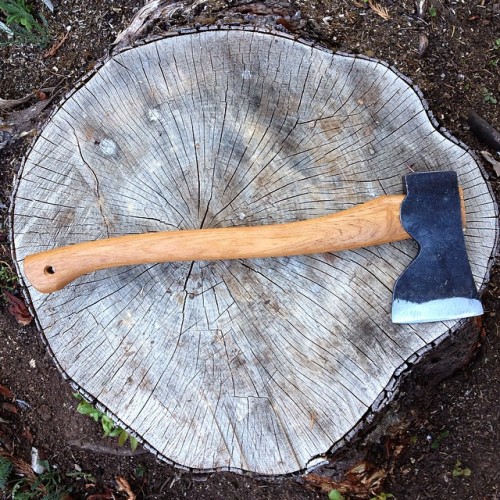

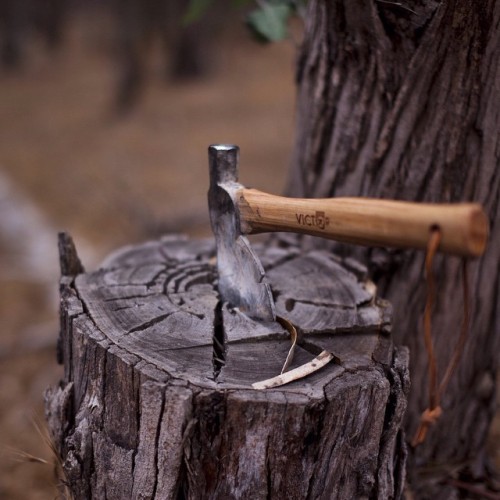
Steps to Reconciliation:
- Acknowledge the problem - speak it out loud and let it be known specifically what happened or what's wrong
- Prepare what you want to convey - gather your thoughts beforehand; think about what you want to say and how you want to say it move forward
- Go in with the intention of sustaining a relationship not ending it - possibly the most important point; remember the best things/memories you have with that person and let that guide you; if you have no intention of moving forward with a person - know that and be prepared to address that as well;
- Have the conversation - be open and honest and vulnerable; listen and really do so; speak to be understood in the clearest terms; make eye contact and watch your body language; use affective statements instead of making generalizations (i.e. I felt ... when ...)
- Come to a conclusion - take responsibility but move past the blame game; sometimes it's as easy as saying "I'm sorry that I (never you) did/said ..." and leave it there; do not justify or speak about intent - doing so misses the point
- Feel it out & bury the hatchet - if you feel a hug/handshake go for it, if not then move on; say something that you value about the person and end on a positive note; telling someone that you appreciate having them in your life can be huge in solidifying the burying of the hatchet
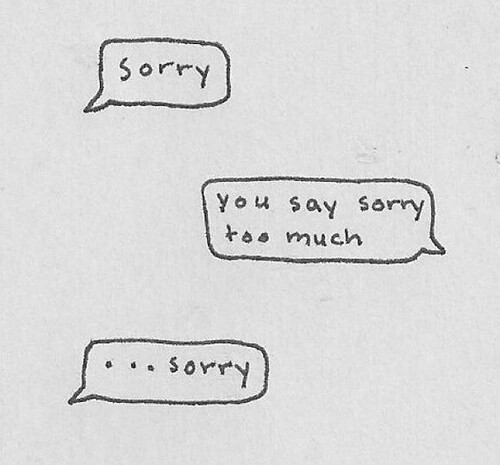
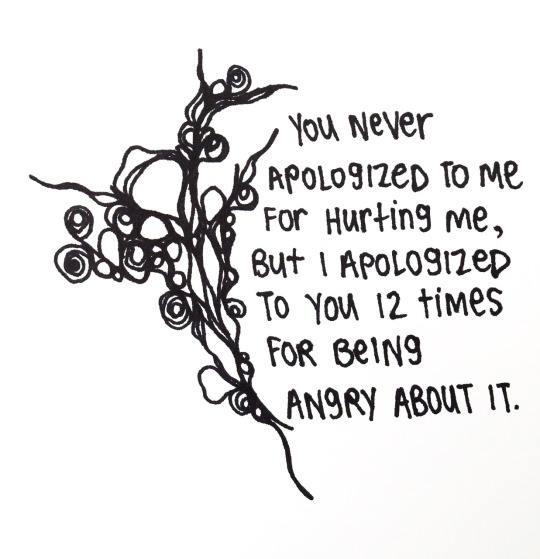

Apologies are difficult and I can tell you that as someone who is aware of how stubborn I am, they make me anxious. What I also know is that people are worth being connected to and that means working towards rapprochement. It's a negotiation. I ask myself and I willing to lose this person, and almost always the answer is no and that's what I need to know that I must apologize. Apologizing doesn't mean you're weak, it means quite the opposite that you're strong, mature, and responsible. If you're funny, be funny in your apology; if you're somber then be that way. However you communicate, just do it effectively.
In receiving an apology I often find myself apologizing to myself. (But you didn't do anything) Yeah, I know, but I tell say sorry to myself for being hurt. I like to think that I'm invincible when in actuality I'm really quite the opposite. It's my way of preparing myself for an apology and oftentimes making up for the apologies that never come (whether someone has been made aware of how they have affected me or not). Without taking care of yourself in this way I found myself to being held down the heaviness, negativity, and resentment of unburied hatchet. Sometimes it's a partner job and other times you dig and bury it for yourself. I choose to let stuff go and legitimately feel lighter in body and soul. The aftermath of conflict takes it's toll if you don't let yourself feel what has occurred, take ownership of how it has impacted you, and then release it.
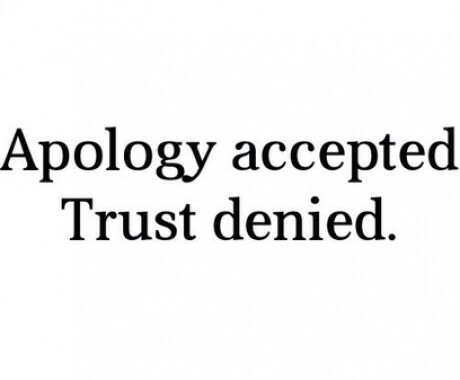
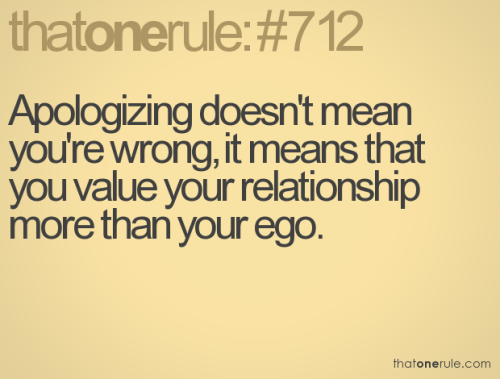
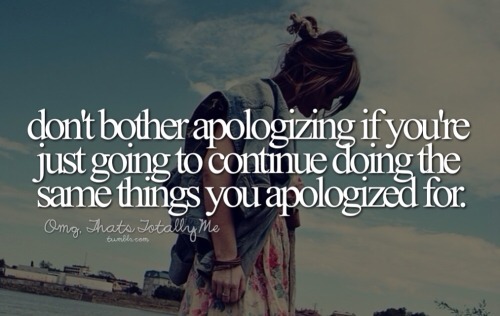
The last thing I'll say is that you can and should demand proper apologies. Don't accept a half-assed apology particularly the problematic ones that implicate you as the perpetrator (i.e. I'm sorry you were offended or I'm sorry you took it that way). Do, however, realize how hard it can be to give an apology, people may be dealing with the shame that comes from realizing they have hurt someone else. Take what someone says to heart. It's not useful to critique someone's apology or invalidate it - then that goes back on you as you standing a roadblock to moving on. On the flipside, if you're not ready or don't think you should apologize (you probably should) but don't do it if you cannot be authentic. Apologizing DOES NOT MEAN that trust is immediately restored - that's another endeavor to work for. Apologizing is also worthless if you continue to exude the same behaviors. Burying the hatchet means agreeing to at least try and change how show up.
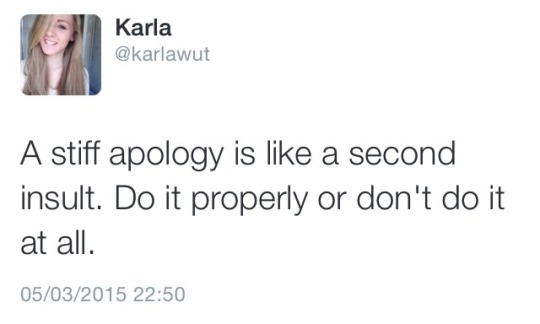
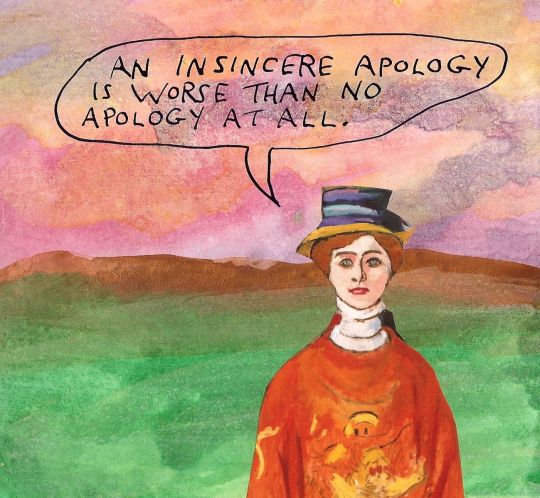
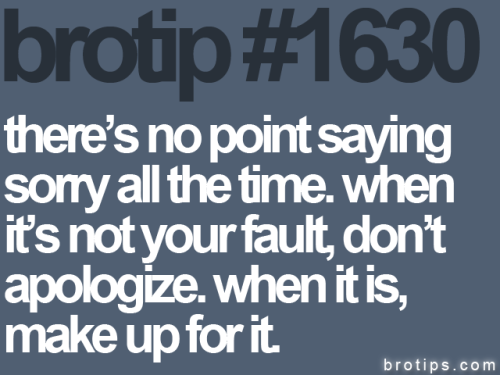
My blog post question for the day is ... how do you feel about conflict? I am not a fan at all. As someone thoroughly concernced with forging long-lasting connetions, it's taken a while (and I'm sitll learning) that conflict is a natural part of growth.


Comments
Post a Comment
Share you answer to the blog post question of the day